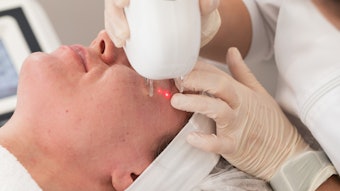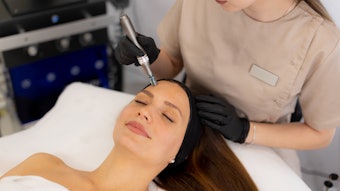
“I don’t know the key to success, but the key to failure is trying to please everybody.” —Bill Cosby
It’s unfortunate, but here’s the reality of cosmetic surgery: If you’re treating the majority of the clients who come to you in consultation, you’re putting your practice in jeopardy. Consider following an unwritten rule of thirds—only treat approximately 33% of your cosmetic consults. Of course, there is a group of clients who are retained in the practice only for skin care services, but for a good fraction of patients, you should politely say “no.”
Here’s a look at some patient characteristics that should alert you during cosmetic consultation.
Body dysmorphic disorder
Hint: “I’m so upset with Dr. Smith, Dr. Jones and that butcher Dr. Johnson, but I heard you were the best!”
These clients feel terrible on the inside, and no cosmetic intervention will improve that. Treating only leads to unrealistic hope followed by anger that nothing has changed, and you’ll soon find yourself as the next villain on their list. Consider avoiding working with clients who disparage other physicians, regardless of the reason.
Price-shoppers
Hint: “I’ll do those injections if they’re $10.50 per unit but otherwise, I’m leaving.”
It takes years to refine your highly specialized skills—that comes at a price! Medical esthetic services are commoditized enough without engaging in “per unit” wars with the facility down the street. If a client doesn’t understand that she’s paying for your expertise, not just liquid in a bottle, turn her away. Not only is she unappreciative of your practice, it’s bad business—most price-shoppers never return.
Looking for the easy way out
Hint: An exam shows extensive jowling and laxity, and the client only wants filler.
These clients are often delightful, yet unwilling to face the reality of their therapeutic needs. Or perhaps they know it, but they just need to hear it from you. Could you sell them four syringes of filler? Resurface their skin? Sure. But not only is it unethical, it also leads to unhappy clients and a bad reputation; you’ve wasted their time, and they could have applied that money toward a face-lift.
A poor impression of you
Hint: “I read a questionable review of you online, but my friend Sue likes you, so I’ll give you a shot.”
Peer recommendation in a medical practice is powerful in building trust before a word is spoken. Conversely, if a client has a negative impression of you before the relationship begins—especially if it’s based on an anonymous website review—turn them away. It’s almost impossible to break through that wariness, no matter how superb the cosmetic outcome.
In a hurry
Hint: “Yeah, yeah ... whatever doc, sign me up.”
These clients are often stunned by nominal post-procedure events and are likely to claim that you never warned them about possible outcomes if and when complications arise.
Passively threatening jokers
Hint: “You’d better get this right, or else! Ha ha!”
These patients show little respect for the practice of medicine, and often make good on their threats for anything less than perfection.
A few other clients to avoid include appointment-neglecters, those with questionable motives and any client who is being pressured by someone else to seek cosmetic surgery. To keep your days stress-free and your clients happy, it’s important to stay vigilant. And ironically, telling a client she’s not a candidate can be more uplifting than any procedure. Saying “I went to the doctor, and he told me that I didn’t need anything at all” to her friends is a sure way to breed loyalty and referrals in ways you’d never expect.
J. Mat










